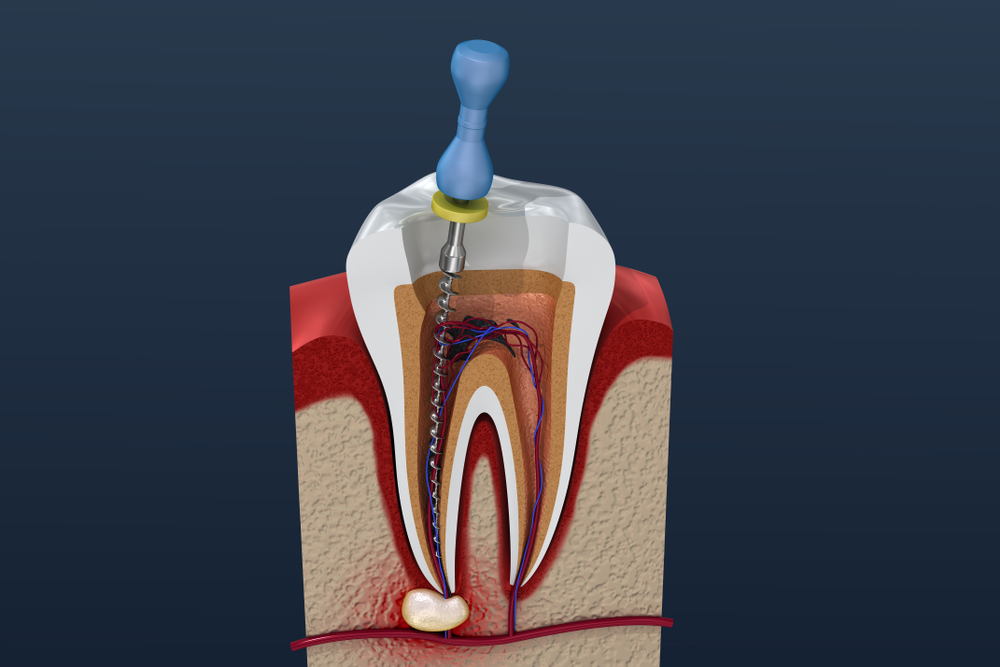Root Canal FAQs

Northside Dental Clinic, a top dentist’s office in Springfield, Missouri, takes care of you and your family through a wide variety of dental services.
Our doctors have decades of experience, and we’re here to help you with your dental needs while making your office visit as pleasant as possible.
We answer frequently asked questions about root canals in today’s blog.
What is the purpose of a root canal?
This dental treatment aims to repair and save a badly damaged or infected tooth rather than extracting it because your normal teeth are the best instruments in your mouth for chewing versus implants or dentures.

How serious is a root canal?
This dental procedure is serious because your mouth is probably in pain and requires specialized work. However, the dentists at Northside Dental Clinic (and any licensed dentists) are highly trained and experienced in performing root canals.
Is it normal to be afraid of having a root canal?
Yes, you’re perfectly normal if you fear this dental procedure. You probably dislike being in pain and not quickly returning to your daily routine. Your dentist will numb the tooth that needs a root canal with a local anesthetic that will wear off later in the day. Most patients return to normal activities by the next day.
Typical fears of root canals include:
- Fear of pain
- Fear of the unknown
- Fear of the cost
How much does a root canal cost?
Depending on the tooth, a root canal can cost between $600 and $850.
How do I get over my fear of root canals?
Talk to your dentist. Your dentist will address your fears, questions, and concerns individually. Dr. Kaelin and Dr. Smith at Northside Dental Clinic promise to care for you compassionately.
Are root canals painful?
No, your dentist can reassure you that a root canal is not painful. Dr. Kaelin or Dr. Smith will describe the procedure step-by-step to allay your fear of pain.

What are the signs I need a root canal?
- Severe pain while chewing or biting.
- Chipped or cracked tooth.
- Pimples on the gums.
- Lingering sensitivity to hot or cold, even after the food or drink causing the sensitivity is gone.
- Swollen or tender gums.
- Deep tooth decay
- Darkening of the gums.
What is the process of getting a root canal?
Your dentist will follow several steps during a root canal procedure, which usually takes just a single appointment.
These are the basic steps of a root canal:
- Initial appointment. Your dentist will recommend a root canal during a routine exam. Then, your next appointment will be scheduled.
- At the appointment, your dentist will take an x-ray of the damaged tooth to examine it more closely using HD images.
- Next, you’ll receive a local anesthetic to numb the tooth and the surrounding area.
- Once the tooth is numb, your dentist places a protective sheet over the area, called a dental dam, to isolate the affected tooth from the rest of your mouth. The idea is to keep the tooth clean and free from saliva during the root canal.
- Your dentist uses tools to make an opening at the center of the tooth’s crown or the flat part where you chew your food.
- A dentist uses small tools to clean out the pulp and root canals to prepare the space for a filling. The idea is to clean out any damaged and infected areas. Your dentist will also disinfect the inside of your tooth to ensure it is completely clean.
- The dentist fills the space in the tooth with a rubber-like substance called gutta-percha to replace the natural interior of the tooth. An adhesive keeps everything in place.
- Then you receive a temporary filling until a permanent one can be made to cap off the tooth while keeping the gutta-percha intact.
- At your next appointment, your dentist will replace the temporary filling with a permanent one. Your natural tooth remains intact and stronger than before the root canal.
Why is it called a root canal?
Dentists call the procedure a root canal because it cleans out and strengthens the canals of the root of your tooth. These canals are the pair of tiny tubes that supply blood to the pulp, or innermost part, of each tooth.
How long does a root canal take?
A routine root canal appointment takes anywhere from 30 to 60 minutes, but more complicated appointments may take up to 90 minutes.

What should I do before a root canal?
Leading up to your root canal appointment, you should:
- Avoid alcohol and tobacco for a total of 24 hours before the procedure.
- Get a good night’s sleep. We understand this might be difficult because you’re afraid or in pain.
- Eat a couple of hours before the procedure because the numbness in your mouth may make it difficult to eat for a few hours following your appointment.
- Take a nonsteroidal anti-inflammatory (NSAID) painkiller a few hours before your appointment. Ibuprofen is the recommended choice.
- Ask questions about the procedure. Our dentists and dental staff will allay your fears with our compassion and empathy.
What should I do after a root canal?
- Allow the numbness to wear off gradually without biting on your cheeks, tongue, or lips.
- Take any pain medication as directed by your dentist.
- Eat soft foods for three days afterward.
- Avoid hot, cold, hard, and crunchy foods.
- Rinse with lukewarm saltwater to relieve some discomfort.
- Get a good night’s sleep to foster your body’s natural healing process.
Can my tooth survive after a root canal?
Yes, your original tooth remains mostly intact. Even though the dentist cleans out the blood vessels of your natural tooth during a root canal, the tooth that remains is perfectly able to handle chewing and everyday activities.
How long does a root canal last?
A root canal can last a lifetime with proper care and dental hygiene. If you ever have issues with the tooth in the future, contact your dentist for an exam to determine what can be done to help you.
How many dental offices offer root canals in Springfield, Missouri?
Dozens of dental offices and more than 100 dentists offer root canals in Springfield.
Have any more questions? Contact Northside Dental Clinic or call (417) 862-2468.
We promise to treat you with compassion and respect.

